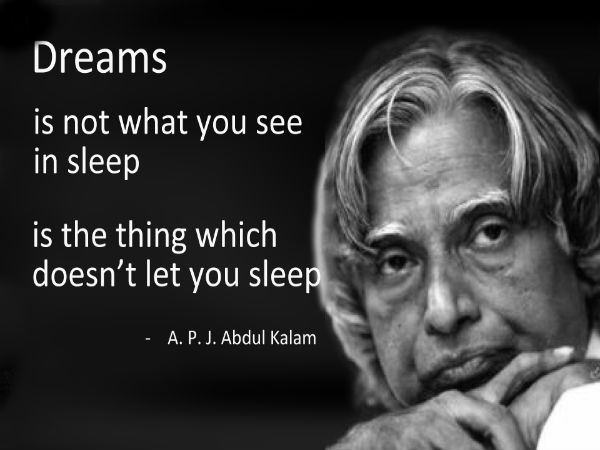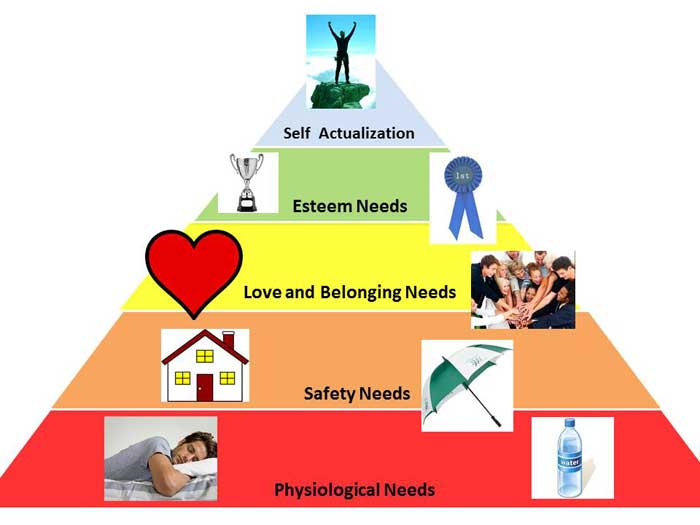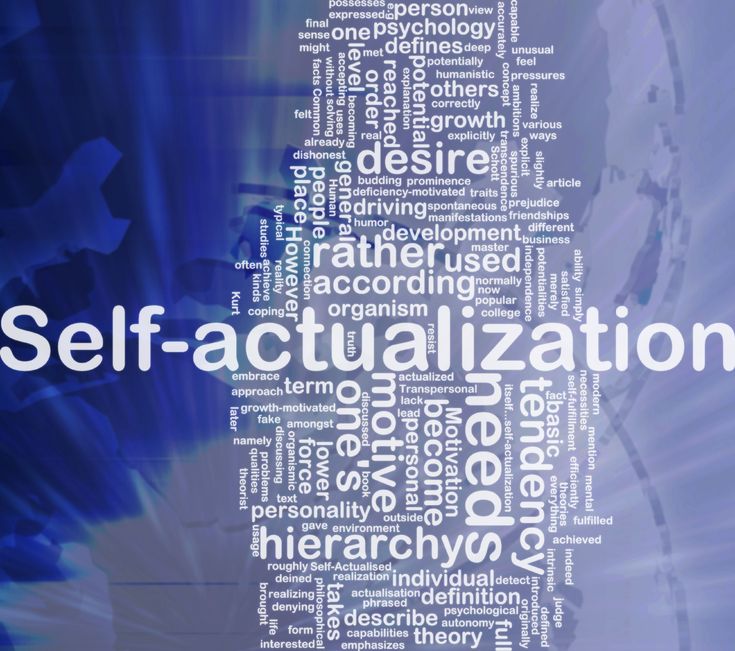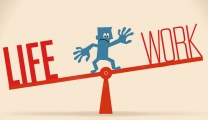
One of the regrets touched on in ‘The Top Five Regrets of the Dying: A Life Transformed by the Dearly Departing’ - Bronnie Ware is about working too hard. No doubt, people regret having worked too hard. Presumably, many may not love their work, but keep at it to fend for their families or because they enjoy the material accoutrements that a high pay conferred but figured out too late that the things don’t matter as much as relationships.
However, I think what people regret more than working too hard is not working hard enough. They regret not knowing themselves well (rather, not knowing what they are good at, what they aren’t so good at, what they love doing, why they love what they love doing, what make them feel happy, what make them feel fulfilled). Let spare some minutes of your life reading the below stories and you will find it’s worth it.
“Do you know yourself well?”

A long time ago, a king disguised as a common man visits his countryside. One evening, when he arrives at a remote small village, he is soon surrounded by a mob of curious children. He immediately starts a conversation with them. He is impressed by Vikram – one enthusiastic ten-year-old boy. Vikram talks to the king about his dream of studying in the kingdom capital’s best school one day and finally become a minister to serve a king. The king gets moved by the clarity of this child’s dream and belief about that dream realization. Next morning, the king reveals his identity and asks Vikram to come to the capital with him.
Vikram is admitted to the capital’s best school. He then passes out of university with flying colors. He gets placed in a job in the government of the king. He can’t believe how lucky he is when he earns his first salary. He works even more diligently and saves enough over the years to get a house. He then starts a family. He now works harder than before and keeps being promoted in his job. His reputation as a sincere, devoted and capable employee spreads far and wide. One day, he is appointed as the king’s minister. As a minister, he carries out innovative ideas and services to improve millions of lives in the kingdom. He gets fame and respect. Vikram – the little boy, now gets grown up to be living his dream life. The king - his mentor is indebted for his success.
One day, the king dies.
Being devastated and heartbroken from the sorrows, Vikram comes back to his village. After walking the whole day, he arrives in a cottage that a sage lives. Looking at the downhearted Vikram, the sage comforts him. Vikram tells the story of his dream life. And because the king is gone, he has no motivation and interest to keep on his work as a minister.
The sage silently listens to Vikram, and finally asks him, “Do you know yourself well?” – Do you know what you are good at? What are you not so good at? What you love doing and why you love what you love doing? What makes you happy? What makes you feel fulfilled?
Vikram thinks over that question the whole night. He thinks back to the happiest moments of his life, from his rendezvous with the late king to his appointment as a minister. He also thinks about the lessons he has drawn from his failures. He figures out that he has felt enormous satisfaction and fulfillment when he has released his creative potential at work, when his work has ended up making a positive difference to millions of lives in the kingdom, when he has been in utter love with what he is doing. No other achievement has made him feel that happy and fulfilled.
Next day morning, he thanks the sage and says him good bye to head back to the capital. The sage smiles in silence and wonders at the power of self-actualized and self-driven humans.
And many other impact stories about self-actualization
Have you ever thought about what motivates N.R.Narayana Murthy – the billionaire co-founder of Infosys, an Indian multinational corporation that provides business consulting, information technology, software engineering and outsourcing services? Or what motivates Azim Premji - the chairman of Wipro Limited, a global company provider of comprehensive IT solutions and services, or Ratan Tata - the Chairman of Tata Sons, the holding company of the Tata Group. They all love becoming entrepreneurs to generate jobs from the people, to generate and share wealth with the people, changing lives around them.

The late president of India - Dr. APJ Abdul Kalam passed away after collapsing during a lecture at Indian Institute of Management (IIM). He kept inspiring people till his last breath. Unsurprisingly, he is called ‘the People’s President of India’.
The last word of linguist Joseph Wright who edited ‘English Dialect Dictionary’ is ‘Dictionary’.
Gustav Mahler - an Austrian late-Romantic composer and one of top-notch conductors of his generation, died in bed, conducting an imaginary orchestra. ‘Mozart’ was his last word.
The last words of baseball player “Moe” Berg were “How did the Mets do today?”
Joseph Henry Green – an English surgeon, was checking his own pulse when he lay dying. His last word was “Stopped”.

And according to Mona Simpson, sister of Steve Jobs (also, a novelist and English professor), the Apple founder’s last words were, "Oh wow. Oh wow. Oh wow." Though the precise meaning of his ultimate utterance is difficult to pin down, it’ll further fuel interest in a man that keeps on captivating the business and creative worlds even after life. His sister used the eulogy to pay tribute to beliefs of her late brother:
“[…]
Steve worked at what he loved. He worked really hard. Every day.
That is incredibly simple, but true.
He was the opposite of absent-minded.
He was never embarrassed about working hard, even if the results were failures. If someone as smart as Steve was not ashamed to admit trying, maybe I did not have to be.
When he got kicked out of Apple, things were painful. He told me about a dinner at which 500 Silicon Valley leaders met the then-sitting president. Steve hadn’t been invited.
He was hurt but he still went to work at Next. Every single day.
Novelty was not Steve’s highest value. Beauty was.
For an innovator, Steve was remarkably loyal. If he loved a shirt, he’d order 10 or 100 of them. In the Palo Alto house, there are probably enough black cotton turtlenecks for everyone in this church.
[…]”
For those who are interested in:
5 Inspiring People Who went from Zero to Hero
Traits of self-actualized persons

You must hear about Maslow’s hierarchy of needs, 4 out of which are physiological, safety & security, loving or social and self-esteem. They are external stimuli that give temporary happiness but seldom give lasting fulfillment. Do you know yourself well enough? The answers to this question will help you understand self-actualization – the highest need of Maslow’s pyramid and the ultimate source of inspiration. It ignites your power, makes you self-driven to be in absolute love with what you do and why you love what you do. Work is then no longer a list of to-do tasks but a craft you enjoy unleashing your creativity.
In case you are interested in:
Approaches to employee motivation you should not miss
So what are most important characteristics of a self-actualized person?

Maslow studies individuals that he believed to be self-actualized, inclusive of Abraham Lincoln, Thomas Jefferson, and Albert Einstein, to derive the common traits of the self-actualized person. Here are the most important characteristics, from his book ‘Motivation and Personality’:
1. Self-actualized persons embrace the unknown and the ambiguous.
They aren’t threatened or afraid of it. They, instead, accept it, are comfortable with it, and often attracted to it. "The most beautiful thing we can experience is the mysterious," - Einstein.
2. They accept themselves, together with their flaws.
They perceive themselves as they are. With a high level of self-acceptance, they lack defensiveness or artificiality. Eventually, shortcomings aren’t seen as shortcomings at all, but simply as neutral personal traits.
3. They prioritize and enjoy the journey, not just the destination.
They can often enjoy the getting to some place as well as the arriving. It is, from time to time, possible for them to make out of most trivial and routine activity an intrinsically engaging game, dance or play.
4. Whilst they are inherently unconventional, they don’t seek to shock or disturb.
"... the world of people in which he lives could not understand or accept [his unconventionality], and since he has no wish to hurt them or to fight with them over every triviality, he will go through the ceremonies and rituals of convention with a good-humored shrug and with the best possible grace [... Self-actualized persons would] usually behave in a conventional fashion simply because no great issues are involved or because they know people will be hurt or embarrassed by any other kind of behavior."
5. They are motivated by growth, instead of the satisfaction of needs.
"Our subjects no longer strive in the ordinary sense, but rather develop. They attempt to grow to perfection and to develop more and more fully in their own style. The motivation of ordinary men is a striving for the basic need gratifications that they lack."
6. They have purpose
"[They have] some mission in life, some task to fulfill, some problem outside themselves which enlists much of their energies. [...] This is not necessarily a task that they would prefer or choose for themselves; it may be a task that they feel is their responsibility, duty, or obligation.”
7. They are not troubled by small things.
Instead, they focus on the bigger picture. "They seem never to get so close to the trees that they fail to see the forest. They work within a framework of values that are broad and not petty, universal and not local, and in terms of a century rather than the moment.”
8. They are grateful.
"Self-actualizing people have the wonderful capacity to appreciate again and again, freshly and naïvely, the basic goods of life, with awe, pleasure, wonder, and even ecstasy, however stale these experiences may have become to others [...] Thus for such a person, any sunset may be as beautiful as the first one, any flower may be of breath-taking loveliness, even after he has seen a million flowers. [...] For such people, even the casual workaday, moment-to-moment business of living can be thrilling."
9. They share deep relationships with some, but also feel identification and affection toward the entire human race.
"Self-actualizing people have deeper and more profound interpersonal relations than any other adults [...] They are capable of more fusion, greater love, more perfect identification, more obliteration of the ego boundaries than other people would consider possible. [...] These people tend to be kind to almost everyone [...] of suitable character regardless of class, education, political belief, race, or color."
10. They are humble
"They are all quite well aware of how little they know in comparison with what could be known and what is known by others. Because of this it is possible for them without pose to be honestly respectful and even humble before people who can teach them something."
11. They resist enculturation.
They don’t allow themselves to be passively molded by culture. Instead, they make their own decision, choosing what they see as good and rejecting what they see as bad. Still, they don’t accept all like a sheep, or reject all like an average rebel.
As a result of their self-decision, they have codes of ethics that are individualized rather than being dictated by society. "They are the most ethical of people even though their ethics are not necessarily the same as those of the people around them [...as] the ordinary ethical behavior of the average person is largely conventional behavior rather than truly ethical behavior."
12. Despite all this, they are not perfect.
"There are no perfect human beings! Persons can be found who are good, very good indeed, in fact, great. [...] And yet these very same people can at times be boring, irritating, petulant, selfish, angry, or depressed. To avoid disillusionment with human nature, we must first give up our illusions about it."
The last words...

If you are regretting working too hard, there are two ways to tackle this regrets. Work less hard, and spend time living a life true to yourself. Or, work just as hard – even harder – on things that you consider to be important and meaningful.












Replies to This Discussion